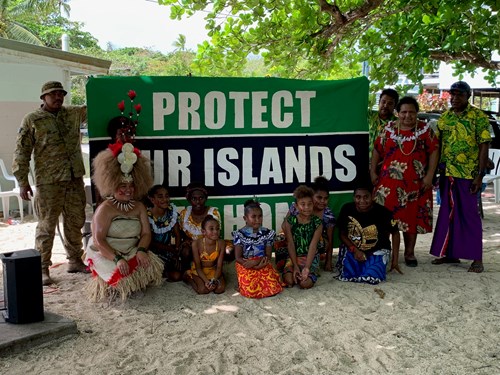Adapting to climate change
 As island and sea people, Torres Strait islanders are very in tune with the ebb and flow of our local environment. The changes we are starting to experience are at odds with our traditional knowledge of the seasons passed on by our forefathers. This growing uncertainty is of great concern for us. My personal introduction to the negative impacts of climate change began in the early 1990s when more and more Elders, particularly on the central sand cays and north-western swamp islands, were expressing concern about their eroding shorelines. In more recent times, we see our coasts increasingly eaten away by the sea on all islands to varying degrees and worry about how much of our homelands might disappear beneath the waves in the future due to climate change. Our country and our culture are so interconnected that you cannot lose country without losing culture and with that, our identity as Torres Strait peoples. Our older people worry about what all this means for their children as well as things like ancestral graves.
As island and sea people, Torres Strait islanders are very in tune with the ebb and flow of our local environment. The changes we are starting to experience are at odds with our traditional knowledge of the seasons passed on by our forefathers. This growing uncertainty is of great concern for us. My personal introduction to the negative impacts of climate change began in the early 1990s when more and more Elders, particularly on the central sand cays and north-western swamp islands, were expressing concern about their eroding shorelines. In more recent times, we see our coasts increasingly eaten away by the sea on all islands to varying degrees and worry about how much of our homelands might disappear beneath the waves in the future due to climate change. Our country and our culture are so interconnected that you cannot lose country without losing culture and with that, our identity as Torres Strait peoples. Our older people worry about what all this means for their children as well as things like ancestral graves.
Our region, its people and environments sit at the front line of climate change impacts. How are we meant to respond to this threat that comes to us from beyond our shores? How many species and cultural connections must be impacted upon or lost before the world gives this issue the action it needs?
Whilst recognising that these impacts are primarily caused by events and factors happening in other parts of our planet far away from our remote region, Islander communities are becoming more actively involved in making positive plans to deal with climate change issues at a local level.
Vic McGrath